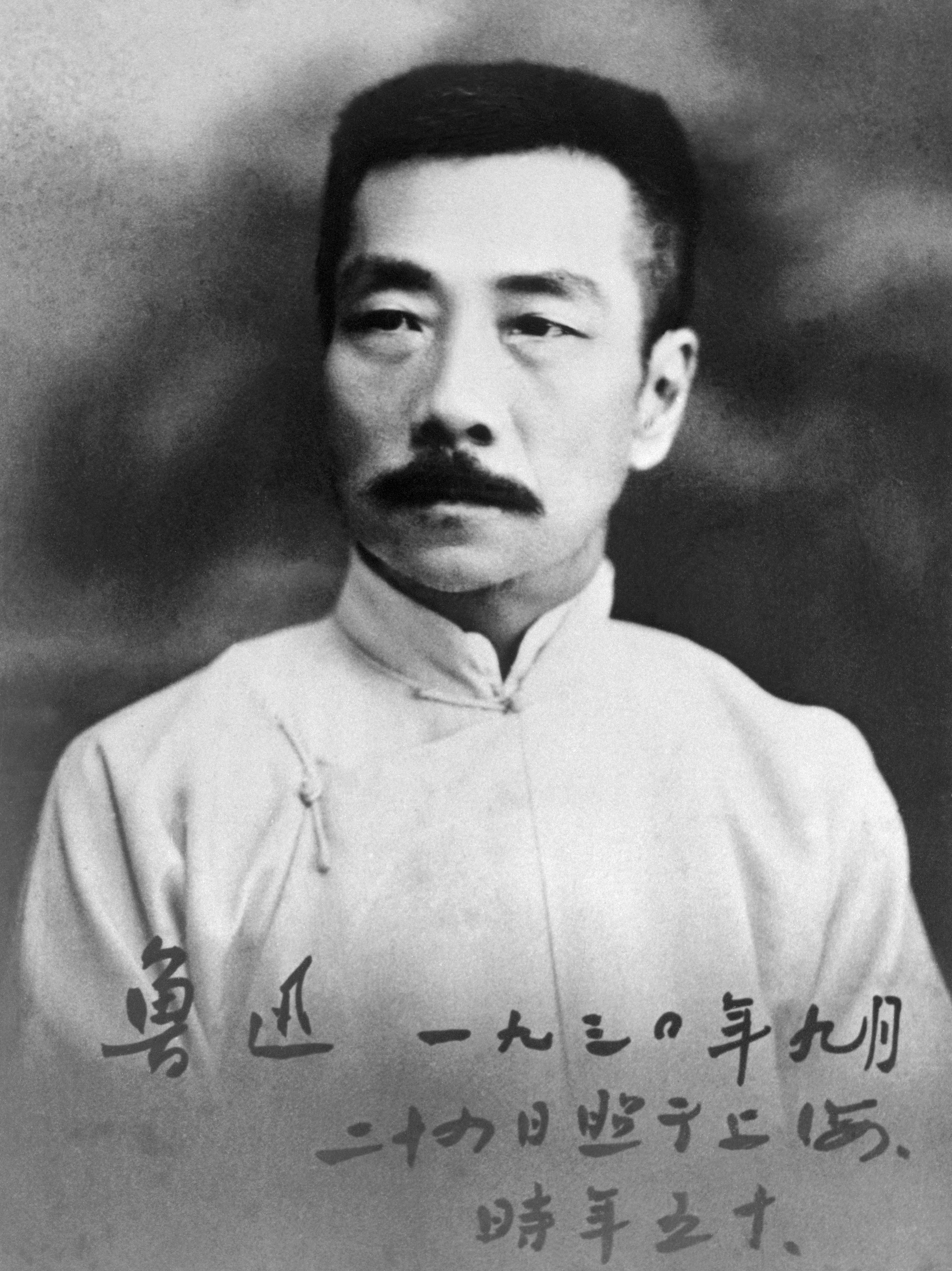Lu Xun
 Lu Xun (, ; 25 September 188119 October 1936), pen name of Zhou Shuren, born Zhou Zhangshou, was a Chinese writer. A leading figure of modern Chinese literature, he wrote in both vernacular and literary Chinese as a novelist, literary critic, essayist, poet, translator and political commentator, known for his satirical, acerbic tone and critical reflections on Chinese history and culture.
Lu Xun (, ; 25 September 188119 October 1936), pen name of Zhou Shuren, born Zhou Zhangshou, was a Chinese writer. A leading figure of modern Chinese literature, he wrote in both vernacular and literary Chinese as a novelist, literary critic, essayist, poet, translator and political commentator, known for his satirical, acerbic tone and critical reflections on Chinese history and culture. Lu was born into a declining family of landlords and scholar-officials in Shaoxing, Zhejiang. Although he initially aspired to take the imperial examinations, his family’s limited financial means compelled him to attend government-funded schools that offered a "Western-style education." After graduation, Lu pursued medical studies at Tohoku University in Japan but eventually dropped out, turning his attention to literature. Financial difficulties forced his return to China, where he taught at various secondary schools and colleges before taking a position at the Ministry of Education of the Republic of China.
Lu pioneered the New Culture Movement by publishing the first novel in vernacular Chinese, ''Diary of a Madman,'' in 1918. He gained prominence through his political writings in ''La Jeunesse'' following the May Fourth Movement in 1919. From the late 1920s onward, Lu became increasingly engaged with Marxist thought and leftist politics. In the 1930s, he served as the nominal leader of the League of Left-Wing Writers in Shanghai. After 1949, he was canonized by the People’s Republic of China. Provided by Wikipedia
